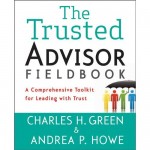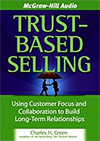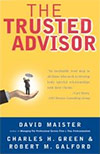How to Increase Trust in Organizations
I was grocery shopping Saturday. It was 2PM, 96 degrees out – pretty hot for New Jersey – and I was in the checkout line. The cashier had started sliding my purchases through the register, when suddenly I noticed a bag left over from the customer before me. She had left and gone to her car. The woman […]
S&P and the New Challenge of Integrity in Business
We’ve all read tales of corporate wrongdoing – think Bernie Madoff, Enron, LIBOR. In most cases, managers engaged in nefarious behavior, knowing they were doing wrong. There are a few cases where the miscreant could plausibly argue ignorance, or good intentions – Martha Stewart, perhaps. But a recent courtroom defense by Standard & Poors in […]
The Tricky Relationship Between Auditing and Ethics
We should all do the right thing. Yet the wrong thing often gets done. Indeed, you can’t always trust everyone to do the right thing. And so we have evolved enforcement mechanisms – laws, guidelines, agreements, protocols, commandments. Frequently, those mechanisms depend on some form of auditing – pop quizzes, random drug testing, probable cause. And […]
Talk To Us
THE TRUSTED ADVISOR FIELDBOOK
 The pragmatic, field-oriented follow-on to the classic The Trusted Advisor. Green and Howe go deep into the how-to’s of trusted business relationships—loaded with stories, exercises, tips and tricks, and deeply practical advice.
The pragmatic, field-oriented follow-on to the classic The Trusted Advisor. Green and Howe go deep into the how-to’s of trusted business relationships—loaded with stories, exercises, tips and tricks, and deeply practical advice.
FIND OUT MORE
TRUST-BASED SELLING
 “Sales” and “Trust” rarely inhabit the same sentence. Customers fear being “sold” — they suspect sellers have only their own interests at heart. Is this a built-in conflict? Or can sellers serve buyers’ interests and their own as well? The solution is simple to state, hard to live—and totally worth the effort.
“Sales” and “Trust” rarely inhabit the same sentence. Customers fear being “sold” — they suspect sellers have only their own interests at heart. Is this a built-in conflict? Or can sellers serve buyers’ interests and their own as well? The solution is simple to state, hard to live—and totally worth the effort.


